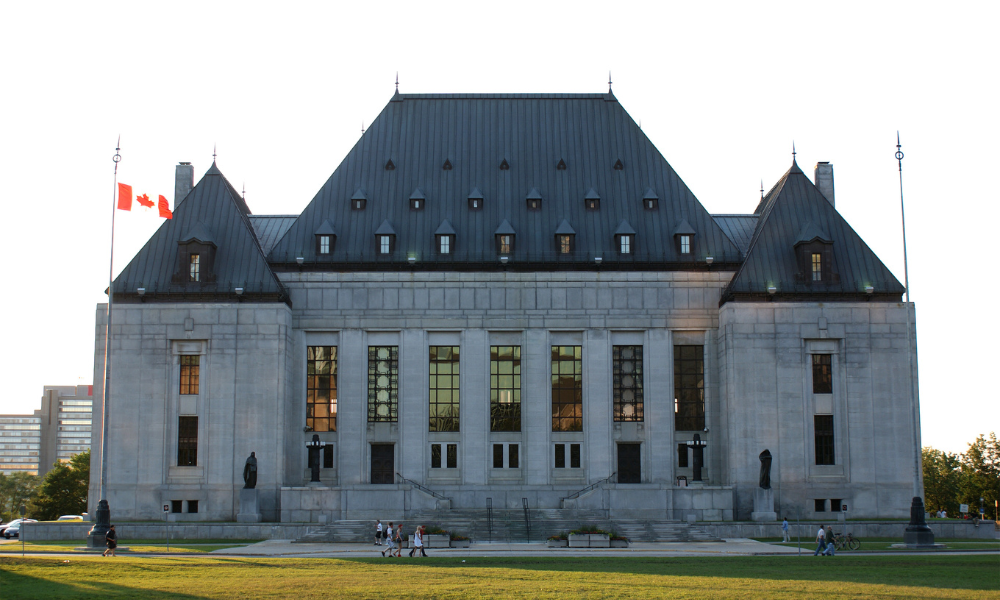
Ontario appeal court noted concern over his possible involvement in will despite revoked law license

Canada’s highest court refused permission to appeal requested by a former lawyer whose request for appointment as estate trustee the Ontario Superior Court of Justice had rejected and whose appeal the Ontario Court of Appeal had dismissed.
A will executed in September 2022 left the estate to the will-maker’s five beneficiaries: his four children and common law spouse. He appointed his friend as executrix and trustee. The appellant witnessed the will’s signing. The will’s backsheet identified the appellant as a consultant and included his name and address, where a lawyer’s name and address would usually appear.
The will-maker passed away on Apr. 8, 2023. Two days later, the named trustee renounced her right to an appointment certificate. In late April and early May, the five beneficiaries signed a consent to the appellant’s appointment as estate trustee.
In July 2023, the appellant applied for an appointment certificate. He attached the named trustee’s renunciation and the beneficiaries’ signed consents to his application. The registrar referred the application to a judge and asked him to consider whether it raised an issue requiring a judicial determination.
In September 2023, an application judge of the Ontario Superior Court of Justice issued a direction finding that the application raised the issue of whether he should exercise the court’s inherent jurisdiction to refuse the application on the basis that the appellant’s appointment as estate trustee could bring the administration of justice into disrepute.
The judge raised a concern that the appellant might be engaged in the unlicensed practice of law. He asked the beneficiaries and appellant to show that he did not participate in such practice or commit other acts rendering his appointment inappropriate. The appellant did not respond to the direction, while the beneficiaries filed a notice of motion requesting the appellant’s appointment.
In November 2023, the judge dismissed the application and refused the appellant’s appointment. He held that he had the inherent jurisdiction to deny the appointment and found it appropriate to do so in the circumstances.
The judge explained that he had to weigh two competing considerations: the heirs’ wishes and the court’s overarching responsibility to promote confidence in the administration of justice and uphold the rule of law.
The judge accepted that a disbarred lawyer could act as an estate trustee. However, the judge noted the absence of evidence assuaging his concern that the appellant could be engaging in unlicensed legal practice.
The appellant challenged the dismissal of his application.
On Aug. 21, 2024, in James Estate (Re), 2024 ONCA 623, the Court of Appeal for Ontario dismissed the appeal. First, the appeal court determined that the application judge had inherent discretion to deny the appellant’s application as an exercise of equitable jurisdiction in an estate proceeding despite the beneficiaries’ support and the lack of competing applications.
Next, the appeal court saw no error in how the judge exercised his discretion and identified and weighed the competing considerations. The appeal court chose to defer to his conclusion. The appeal court noted that the judge had legitimate concerns, including:
The appeal court noted that the appellant failed to alleviate the judge’s concerns or respond to the September 2023 direction with evidence describing his role in planning and managing the will-maker’s estate.
The appeal court ruled that the judge reasonably found that the appellant’s appointment as estate trustee, which would fully authorize him to act on the estate’s behalf, would undermine public confidence in the administration of justice.
First, the appeal court rejected the appellant’s argument that the application judge made an error of principle by focusing on his professional history. The appeal court found the case law the appellant cited for this argument unhelpful.
The appeal court noted that the judge did not have to consider whether denying the application would go against the will-maker’s wishes, given that the deceased did not nominate the appellant in his will.
Second, the appeal court disagreed with the appellant’s argument that the judge focused on his disbarment. The appeal court held that the judge primarily based his concerns on the appellant’s activities directly relating to the estate, not his revoked law license.
Next, the appeal court determined that the judge’s decision led to no reasonable apprehension of bias and that the appellant failed to rebut the presumption of impartiality. The appeal court noted that the beneficiaries’ notice of motion lacked evidence and supported the inference that the appellant had provided legal services to the will-maker and his family after his disbarment.
Last Apr. 17, In the Matter of the Estate of Robert Emanuel James, deceased, 2025 CanLII 33157 (SCC), the Supreme Court of Canada dismissed the application for leave to appeal from the Ontario Court of Appeal’s judgment in this matter.